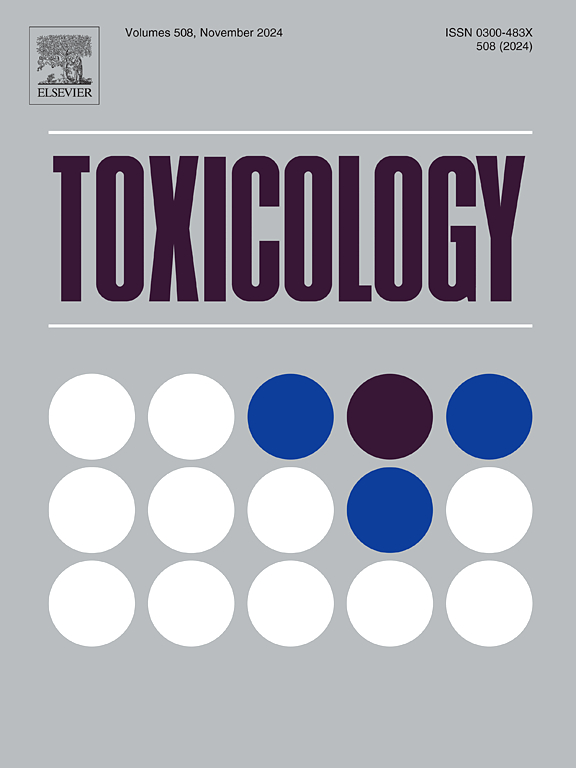Effects of co-exposure to microplastics and perfluorooctanoic acid on the Caco-2 cells
IF 4.8
3区 医学
Q1 PHARMACOLOGY & PHARMACY
引用次数: 0
Abstract
As plastics are produced and used, humans are inevitably exposed to microplastics (MPs) on a daily basis. The pollution of MPs has aroused widespread human concern. Perfluorooctanoic acid (PFOA), a persistent organic pollutant (POP), can be adsorbed by microplastics and may exacerbate human health hazards. In this study, we investigated the effects of co-exposure of PET MPs and PFOA on the human intestinal tract in terms of both cytotoxicity and intestinal barrier through in vitro experiments. The results showed that PFOA induced cellular oxidative stress, mitochondrial dysfunction exerted cytotoxic effects, and inhibited tight junction (TJ) protein expression causing intestinal barrier damage. PET MPs can synergize with PFOA to exacerbate the deleterious effects on the intestinal tract by decreasing cell membrane permeability to increase PFOA accumulation in the cell and enhancing the ability of PFOA to inhibit zonula occludens-1 (ZO-1) proteins.
微塑料和全氟辛酸共同暴露对Caco-2细胞的影响
随着塑料的生产和使用,人类每天不可避免地接触到微塑料(MPs)。MPs的污染已经引起了人们的广泛关注。全氟辛酸(PFOA)是一种持久性有机污染物(POP),可被微塑料吸附,并可能加剧对人体健康的危害。在本研究中,我们通过体外实验研究了PET MPs和PFOA共暴露对人体肠道细胞毒性和肠道屏障的影响。结果表明,PFOA诱导细胞氧化应激,线粒体功能障碍发挥细胞毒性作用,抑制紧密连接蛋白(TJ)表达,导致肠屏障损伤。PET MPs可与PFOA协同作用,通过降低细胞膜通透性,增加PFOA在细胞内的蓄积,增强PFOA抑制ZO-1蛋白的能力,从而加重PFOA对肠道的有害作用。
本文章由计算机程序翻译,如有差异,请以英文原文为准。
求助全文
约1分钟内获得全文
求助全文
来源期刊

Toxicology
医学-毒理学
CiteScore
7.80
自引率
4.40%
发文量
222
审稿时长
23 days
期刊介绍:
Toxicology is an international, peer-reviewed journal that publishes only the highest quality original scientific research and critical reviews describing hypothesis-based investigations into mechanisms of toxicity associated with exposures to xenobiotic chemicals, particularly as it relates to human health. In this respect "mechanisms" is defined on both the macro (e.g. physiological, biological, kinetic, species, sex, etc.) and molecular (genomic, transcriptomic, metabolic, etc.) scale. Emphasis is placed on findings that identify novel hazards and that can be extrapolated to exposures and mechanisms that are relevant to estimating human risk. Toxicology also publishes brief communications, personal commentaries and opinion articles, as well as concise expert reviews on contemporary topics. All research and review articles published in Toxicology are subject to rigorous peer review. Authors are asked to contact the Editor-in-Chief prior to submitting review articles or commentaries for consideration for publication in Toxicology.
 求助内容:
求助内容: 应助结果提醒方式:
应助结果提醒方式:


